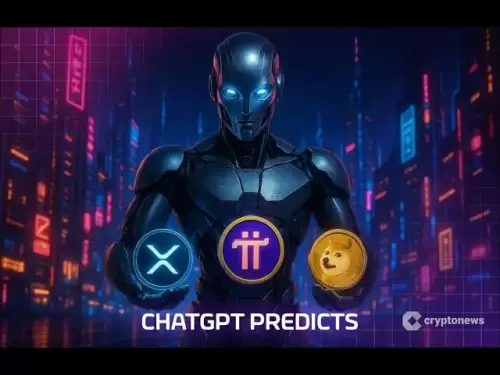-
 Bitcoin
Bitcoin $119,448.2396
0.27% -
 Ethereum
Ethereum $2,992.9919
0.78% -
 XRP
XRP $2.9074
1.58% -
 Tether USDt
Tether USDt $1.0001
0.00% -
 BNB
BNB $687.9097
-0.40% -
 Solana
Solana $161.5804
-0.47% -
 USDC
USDC $0.9998
0.01% -
 Dogecoin
Dogecoin $0.1948
-2.10% -
 TRON
TRON $0.3013
-0.08% -
 Cardano
Cardano $0.7286
-3.16% -
 Hyperliquid
Hyperliquid $47.3153
-3.81% -
 Stellar
Stellar $0.4543
-9.79% -
 Sui
Sui $3.8809
5.63% -
 Chainlink
Chainlink $15.6262
-0.55% -
 Hedera
Hedera $0.2368
-5.31% -
 Bitcoin Cash
Bitcoin Cash $501.2030
-0.80% -
 Avalanche
Avalanche $21.0650
-1.43% -
 UNUS SED LEO
UNUS SED LEO $9.0006
-0.39% -
 Shiba Inu
Shiba Inu $0.0...01310
-1.90% -
 Toncoin
Toncoin $3.0040
1.56% -
 Litecoin
Litecoin $93.8936
-1.20% -
 Monero
Monero $341.8918
1.27% -
 Polkadot
Polkadot $3.9087
-3.05% -
 Uniswap
Uniswap $8.9599
4.78% -
 Dai
Dai $0.9999
0.02% -
 Ethena USDe
Ethena USDe $1.0005
-0.02% -
 Bitget Token
Bitget Token $4.3954
-0.14% -
 Pepe
Pepe $0.0...01207
-2.26% -
 Aave
Aave $314.5223
1.72% -
 Bittensor
Bittensor $408.6988
2.76%
How to build a smart contract that can be paused?
A pausable smart contract allows developers to temporarily halt functions like token transfers or minting, offering flexibility for maintenance while maintaining security through ownership controls and modifiers.
Jul 13, 2025 at 07:00 pm
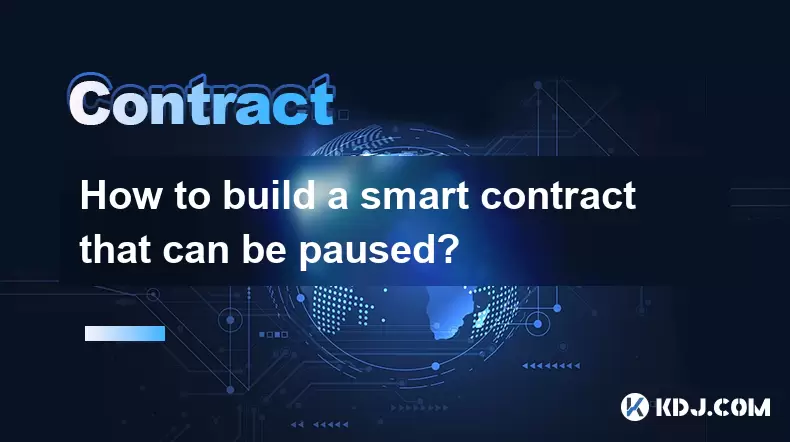
Understanding the Concept of a Pausable Smart Contract
In the world of blockchain and Ethereum-based applications, smart contracts are immutable pieces of code once deployed. However, in practical use cases, developers may require a mechanism to temporarily pause contract functionality for maintenance or emergency purposes. A pausable smart contract allows certain functions to be halted without altering the contract's logic permanently. This feature is especially useful when there's a need to prevent specific operations like token transfers, minting, or user interactions during critical periods.
The ability to pause a contract introduces a governance mechanism that can be controlled by an owner or a multi-signature wallet. It ensures that even though the contract is autonomous, it still retains some level of centralized control under specific conditions.
Key Components of a Pausable Smart Contract
To implement a pausable contract, several key components must be included:
- A boolean state variable such as
paused, which stores whether the contract is currently paused. - Modifiers to restrict function execution based on the paused status.
- Ownership controls to ensure only authorized addresses can toggle the paused state.
For example, in Solidity, you might declare:
bool public paused = false;This line initializes a public variable that can be checked before executing critical functions. Modifiers like whenNotPaused and whenPaused are commonly used to gate access to functions depending on the current state.
Implementing a Pausable Modifier in Solidity
One of the most effective ways to integrate pausability into your contract is through custom modifiers. These modifiers check the paused status before allowing a function to proceed.
Here’s how you can define them:
modifier whenNotPaused() {require(!paused, "Contract is paused");
_;
}
modifier whenPaused() {
require(paused, "Contract is not paused");
_;
}
These modifiers can then be applied to functions you wish to conditionally block:
function mint(address to, uint256 amount) public whenNotPaused {// Minting logic here
}
By applying whenNotPaused, the mint function will revert with a message if someone tries to call it while the contract is paused. Similarly, you can use whenPaused to allow only paused-state operations like resuming the contract.
Adding Pause and Unpause Functions
To actually control the paused state, you need two core functions: one to pause and another to unpause the contract. These should be protected using an access control mechanism such as Ownable.
Here’s an example implementation:
function pause() public onlyOwner {paused = true;
}
function unpause() public onlyOwner {
paused = false;
}
In this setup, only the owner can invoke these functions. You can enhance security further by implementing multi-sig wallets or timelocks to reduce the risk of unauthorized or accidental pausing.
It's also essential to emit events when the state changes, so off-chain systems can react accordingly:
event Paused();
event Unpaused();function pause() public onlyOwner {
paused = true;
emit Paused();
}
function unpause() public onlyOwner {
paused = false;
emit Unpaused();
}
Best Practices and Security Considerations
While implementing pausability enhances flexibility, it also introduces potential security risks. Here are some best practices to follow:
- Minimize privileged access: Only trusted entities should have the ability to pause the contract. Consider using role-based access control (RBAC) instead of a single owner.
- Avoid over-pausability: Not all functions should be pausable. For instance, read-only functions or balance checks usually don't need restriction.
- Test thoroughly: Ensure that pausing doesn’t break expected behavior. Test scenarios where the contract is paused and unpaused multiple times.
- Document the mechanism: Users should be aware that the contract has a pausing feature and understand its implications.
Additionally, consider integrating emergency recovery mechanisms in case of bugs or vulnerabilities being exploited during operation.
Example Implementation in Full
Putting everything together, here's a simple but complete example of a pausable token contract using OpenZeppelin’s libraries:
pragma solidity ^0.8.0;import "@openzeppelin/contracts/token/ERC20/ERC20.sol";
import "@openzeppelin/contracts/access/Ownable.sol";
contract PausableToken is ERC20, Ownable {
bool public paused = false;
constructor(string memory name, string memory symbol) ERC20(name, symbol) {}
modifier whenNotPaused() {
require(!paused, "PausableToken: paused");
_;
}
function pause() external onlyOwner {
paused = true;
}
function unpause() external onlyOwner {
paused = false;
}
function mint(address to, uint256 amount) external whenNotPaused {
_mint(to, amount);
}
}
This contract extends OpenZeppelin's ERC20 base class and adds pausability to the mint function. The owner can pause and unpause the contract at will.
Frequently Asked Questions
Q1: Can any function in a smart contract be made pausable?
Yes, any function can be made pausable by applying the whenNotPaused or whenPaused modifier. However, not all functions should be pausable—especially those related to governance or ownership.
Q2: Is it possible to pause a contract permanently?
Technically, yes. But doing so could render parts of the contract unusable. It's generally advised to include an unpause function unless the intention is to permanently disable functionality.
Q3: What happens to pending transactions when a contract is paused?
Pending transactions that attempt to execute paused functions will fail and revert with an error message. Transactions already mined but not yet executed will also be reverted if they target paused functions.
Q4: How does pausability affect decentralized finance (DeFi) protocols?
In DeFi, pausability can be both a safety mechanism and a point of centralization concern. Protocols often use time-locked governance to mitigate misuse of pausing rights.
Disclaimer:info@kdj.com
The information provided is not trading advice. kdj.com does not assume any responsibility for any investments made based on the information provided in this article. Cryptocurrencies are highly volatile and it is highly recommended that you invest with caution after thorough research!
If you believe that the content used on this website infringes your copyright, please contact us immediately (info@kdj.com) and we will delete it promptly.
- PI Coin MIA: Why Coinbase and Binance Aren't Budging
- 2025-07-15 20:30:12
- Bitcoin Profits Take a Dip: What's Behind the Drop?
- 2025-07-15 20:30:12
- TAC Mainnet & Native Token Launch: A New Era for Telegram?
- 2025-07-15 18:50:12
- Ripple's RLUSD Stablecoin Eyes EU Expansion: Luxembourg Launch Under MiCA
- 2025-07-15 18:50:12
- Whales, DeFi Tokens, and DOGE: A New Era of Crypto Investments?
- 2025-07-15 19:10:12
- Bitcoin Yield Takes Center Stage: Function's $10M Raise & Galaxy Digital's Bet
- 2025-07-15 19:10:12
Related knowledge
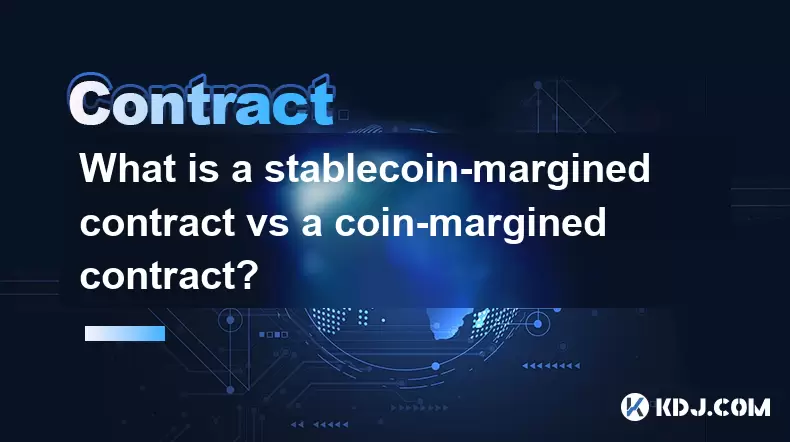
What is a stablecoin-margined contract vs a coin-margined contract?
Jul 15,2025 at 06:36pm
Understanding the Difference Between Stablecoin-Margined Contracts and Coin-Margined ContractsIn the world of cryptocurrency derivatives, margin plays...
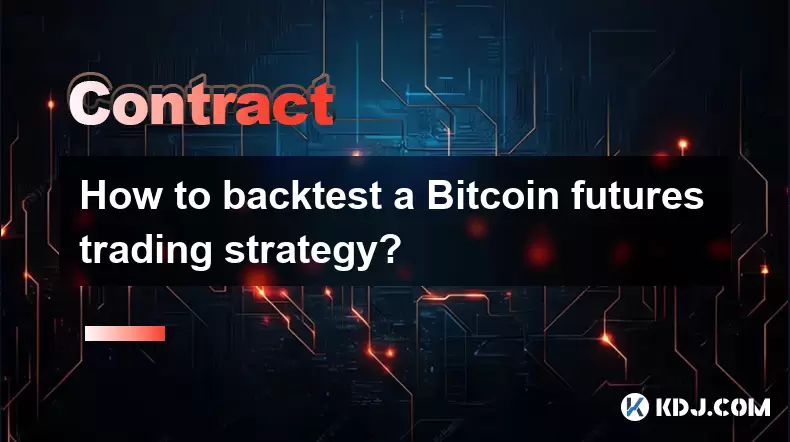
How to backtest a Bitcoin futures trading strategy?
Jul 15,2025 at 11:35am
Understanding Bitcoin Futures TradingBitcoin futures trading involves contracts to buy or sell Bitcoin at a predetermined price and date in the future...
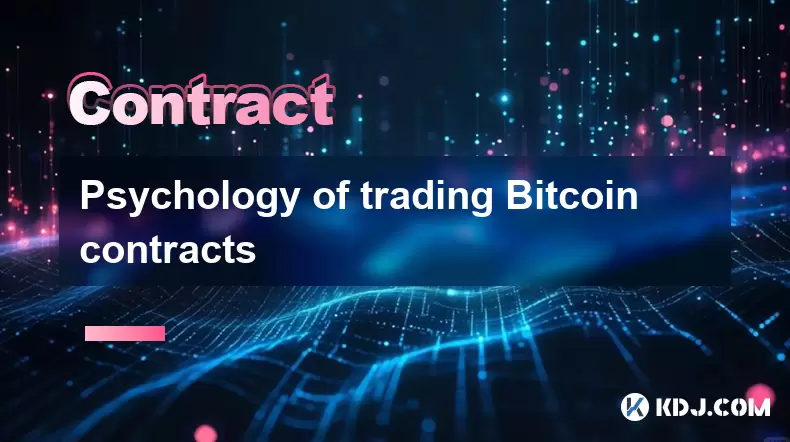
Psychology of trading Bitcoin contracts
Jul 13,2025 at 02:50am
Understanding the Emotional Rollercoaster of Bitcoin Futures TradingBitcoin contract trading, especially in the form of futures, introduces a high lev...
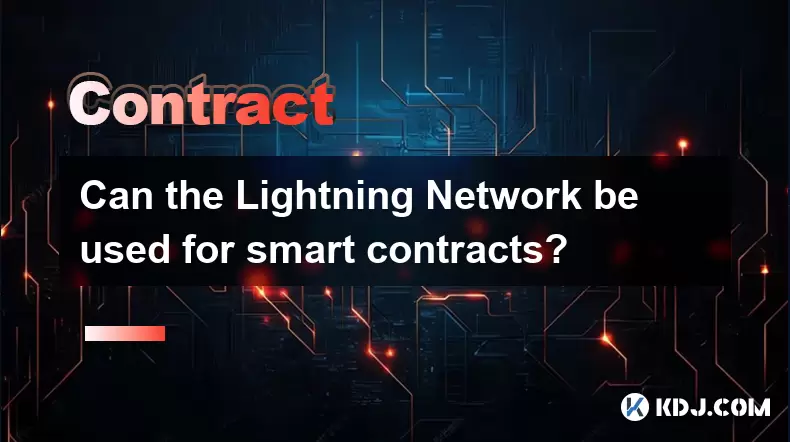
Can the Lightning Network be used for smart contracts?
Jul 14,2025 at 11:28pm
Understanding the Lightning Network's Core FunctionalityThe Lightning Network is a second-layer solution built on top of blockchain protocols like Bit...
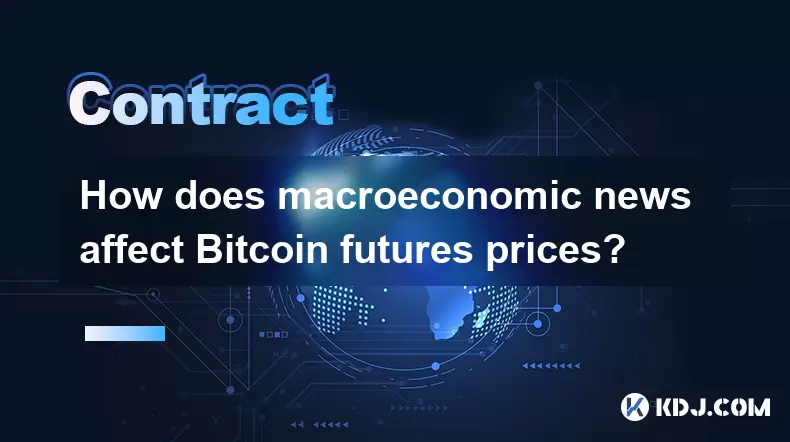
How does macroeconomic news affect Bitcoin futures prices?
Jul 15,2025 at 04:56pm
Understanding the Relationship Between Macroeconomic News and Bitcoin FuturesBitcoin futures are derivative contracts that allow traders to speculate ...
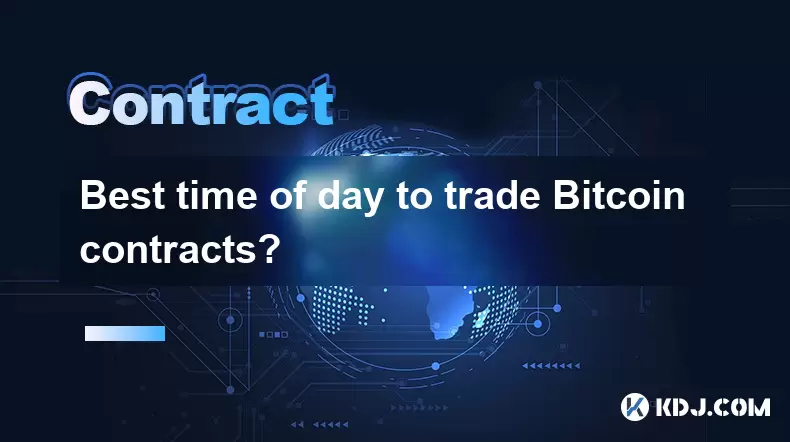
Best time of day to trade Bitcoin contracts?
Jul 13,2025 at 05:29am
Understanding Bitcoin Contracts and Their VolatilityBitcoin contracts, particularly futures contracts, are derivative instruments that allow traders t...

What is a stablecoin-margined contract vs a coin-margined contract?
Jul 15,2025 at 06:36pm
Understanding the Difference Between Stablecoin-Margined Contracts and Coin-Margined ContractsIn the world of cryptocurrency derivatives, margin plays...

How to backtest a Bitcoin futures trading strategy?
Jul 15,2025 at 11:35am
Understanding Bitcoin Futures TradingBitcoin futures trading involves contracts to buy or sell Bitcoin at a predetermined price and date in the future...

Psychology of trading Bitcoin contracts
Jul 13,2025 at 02:50am
Understanding the Emotional Rollercoaster of Bitcoin Futures TradingBitcoin contract trading, especially in the form of futures, introduces a high lev...

Can the Lightning Network be used for smart contracts?
Jul 14,2025 at 11:28pm
Understanding the Lightning Network's Core FunctionalityThe Lightning Network is a second-layer solution built on top of blockchain protocols like Bit...

How does macroeconomic news affect Bitcoin futures prices?
Jul 15,2025 at 04:56pm
Understanding the Relationship Between Macroeconomic News and Bitcoin FuturesBitcoin futures are derivative contracts that allow traders to speculate ...

Best time of day to trade Bitcoin contracts?
Jul 13,2025 at 05:29am
Understanding Bitcoin Contracts and Their VolatilityBitcoin contracts, particularly futures contracts, are derivative instruments that allow traders t...
See all articles


























